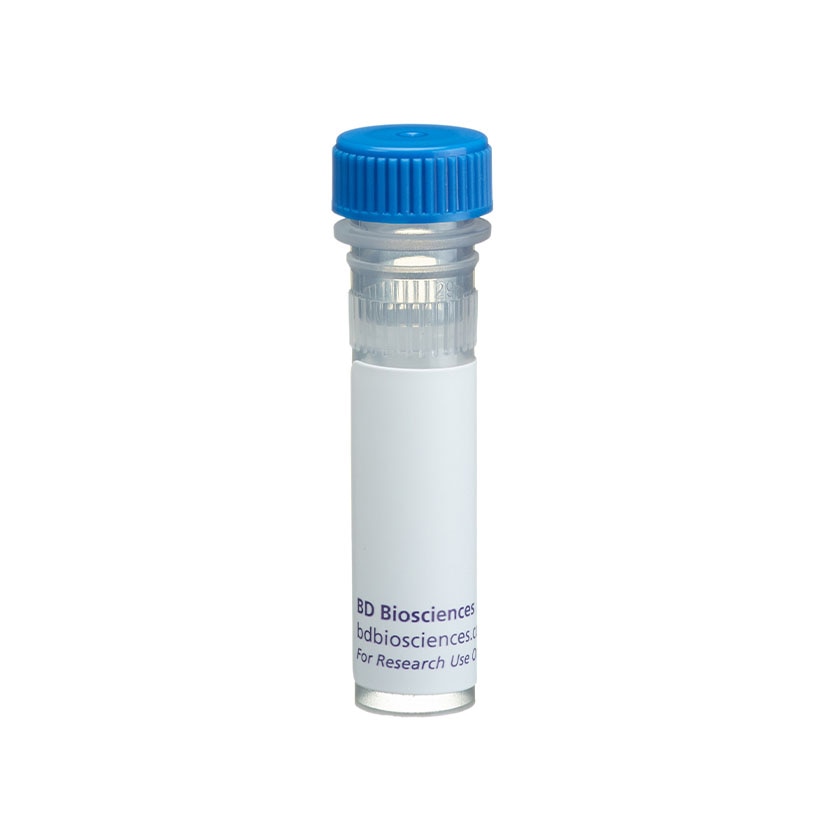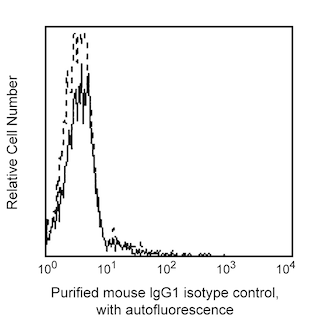Old Browser
Looks like you're visiting us from {countryName}.
Would you like to stay on the current country site or be switched to your country?



Profile of LPS-stimulated peripheral blood monocytes analyzed by flow cytometry


BD Pharmingen™ Purified Mouse Anti-Human CD142

Regulatory Status Legend
Any use of products other than the permitted use without the express written authorization of Becton, Dickinson and Company is strictly prohibited.
Preparation And Storage
Product Notices
- Since applications vary, each investigator should titrate the reagent to obtain optimal results.
- Please refer to www.bdbiosciences.com/us/s/resources for technical protocols.
- Caution: Sodium azide yields highly toxic hydrazoic acid under acidic conditions. Dilute azide compounds in running water before discarding to avoid accumulation of potentially explosive deposits in plumbing.
Companion Products

.png?imwidth=320)
The HTF-1 monoclonal antibody specifically binds to CD142. CD142 is a 45-47 kDa, single chain, type I transmembrane glycoprotein also known as Tissue Factor (TF). CD142 has been referred in the literature as coagulation Factor III or thromboplastin and it is expressed on activated endothelial cells and lipopolysaccharide (LPS)-stimulated monocytes/macrophages. TF associates with factor VIIa to form a complex and acts as an enzyme that initiates the blood coagulation cascade. It is known as the major initiator of clotting in normal hemostasis. CD142 can be induced by various inflammatory mediators in monocytes and vascular endothelial cells. This antibody is useful in inflammation, thrombosis and hemostasis research.
Development References (3)
-
Carson SD, Perry GA, Pirruccello SJ. Fibroblast tissue factor: calcium and ionophore induce shape changes, release of membrane vesicles, and redistribution of tissue factor antigen in addition to increased procoagulant activity. Blood. 1994; 84(2):526-534. (Biology). View Reference
-
McComb RD, Miller KA, Carson SD. Tissue factor antigen in senile plaques of Alzheimer's disease. Am J Pathol. 1991; 139(3):491-494. (Biology). View Reference
-
Whittle SM, Yoder SC, Carson SD. Human placental tissue factor: protease susceptibility of extracellular and cytoplasmic domains. Thromb Res. 1995; 79(5-6):451-459. (Biology). View Reference
Please refer to Support Documents for Quality Certificates
Global - Refer to manufacturer's instructions for use and related User Manuals and Technical data sheets before using this products as described
Comparisons, where applicable, are made against older BD Technology, manual methods or are general performance claims. Comparisons are not made against non-BD technologies, unless otherwise noted.
For Research Use Only. Not for use in diagnostic or therapeutic procedures.
Report a Site Issue
This form is intended to help us improve our website experience. For other support, please visit our Contact Us page.